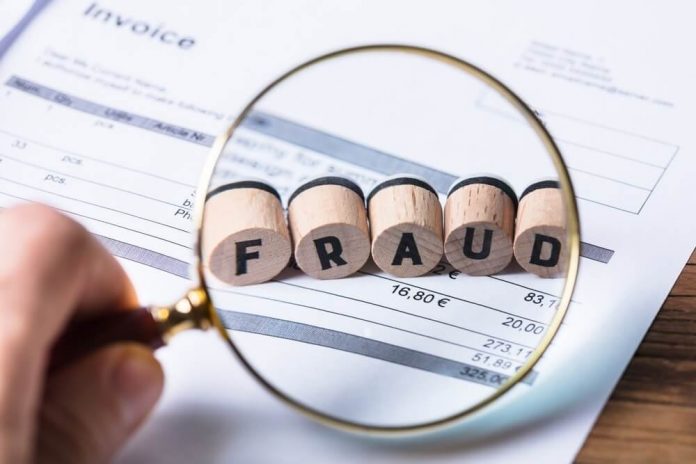This article is written by Srishti Sinha from the Institute of Law, Nirma University. This article deals with the most controversial issue of the arbitrability of fraud disputes.
Table of Contents
Introduction
Arbitration has become the most popular type of alternative dispute resolution, owing to an increase in business conflicts and parties’ desire to resolve them quickly in a private venue. However, it has not been immune to contentious and controversial problems that have arisen from time to time, resulting in significant judicial involvement and adjudication delays. One question that has plagued arbitration is whether or not fraud charges can be addressed under the arbitration process. This problem occurs because arbitration may only decide on rights in personam (against a specific person) and not rights in rem (against public policies). The matter here is that fraud is an issue which not only affects the concerned party but in some cases, it is capable of affecting society as a whole. In other words, it has a dual nature, allowing it to be decided as both a right in personam and a right in rem. The element of fraud is at the heart of the parties’ desire to engage in a contract. This odd feature of fraud has created a huge problem in the arbitration system, resulting in a variety of viewpoints. This article deals with the discussions and variety of viewpoints on the arbitrability of fraud disputes.
Fraud disputes – a rising concern
The truth is that the great majority of parties under contract and businesses suffer from some form of fraud. It’s a rising issue, with one indication pointing to an increase in worldwide economic crime. Also, fraud is not confined to only two parties who entered into a contract but the companies are also vulnerable to a range of risks of danger of fraud or theft. Employee fraud is unfortunately all too widespread. According to PWC’s 2018 Worldwide Economic Crime and Fraud Survey, 49% of global firms have been victims of fraud and economic crime, which is the highest percentage in the last 18 years.
Considering the case of COVID-19, the pandemic of COVID-19 has sped up demand for digital and internet consumer interactions. Businesses have quickly adjusted their processes to accommodate new digital services and onboarding capabilities while meeting customer expectations for quick, simple, and secure interactions. However, the fast growth of digital activity has provided new possibilities for fraudsters, increasing the risk of fraud, identity theft, and data breaches for organizations and individuals.
The areas in which fraud disputes arise frequently
The areas in which fraud disputes arise frequently are:
- Identity theft: Identity theft happens when someone uses data mining to obtain your personal information, such as your name, Social Security number, bank account number, and credit card information. The criminal’s objective is to exploit your personal information to steal your identity and access your bank account to drain cash, create and use credit cards in your name, take out loans, pay medical bills with your health insurance, and submit a tax return to get your refund.
- Fraud under Section 17 of the Indian Contract Act, 1872: Fraud can occur between the parties who enter into a contract. Section 17 of the Indian Contract Act, 1872 defines fraud as when one party, deceive the other party:
- suggest a fact that is not true, by one who does not believe it to be true;
- the active concealment of facts although, having true knowledge of the facts;
- promising to perform any task without the intention of performing it;
- performing any act to deceive the other party;
- performs any act which has been declared as fraudulent under the law.
- Mortgage fraud: Foreclosure rescue schemes, loan modification schemes, and equity skimming are just a few of the frauds. They are frequently carried out by real estate and mortgage experts who abuse their position and specialized expertise.
- Credit and debit card fraud: When someone steals or finds your credit or debit card, or gets to access the information from the card, they can use it to purchase things, withdraw cash, or otherwise use it fraudulently.
- Debt collection fraud: Consumers are contacted by fraudsters acting as collection agencies, requesting payment of fictitious outstanding debts. This is not a real debt collection agency.
In today’s time, COVID-19 scams are also normal. The coronavirus pandemic has provided possibilities for fraudsters to enter the scene and take advantage of people’s fear and financial necessity.
Evolution in arbitrability of fraud
The following judicial opinions demonstrate how the idea of arbitrability of fraud is evolving:
The topic of arbitrability of fraud was raised for the first time in the case of Russel v. Russel (1880), with the court ruling that if there is prima facie proof of fraud, the court might refuse to submit the case to arbitration.
Following that, in the case of Abdul Kadir Shamsuddin Bubere v. Madhav Prabhakar Oak (1961), the Supreme Court concluded that instances containing significant claims of fraud should be determined by the court and that this was an acceptable reason for not submitting the case to arbitration.
In the case of N. Radhakrishnan v. Maestro Engineers (2009), the Supreme Court concluded that a fraud issue is not arbitrable since the case featured serious claims of fraud and the disagreement was to be resolved by the courts via thorough evidence presented by both parties.
In the case of A. Ayyasamy v. A. Paramasivam (2016), it was held that if there is a case where there are serious allegations of fraud then, that case will be non-arbitrable and will be dealt with civil courts. Further, if the allegations are simply fraud then, that case can be dealt with under arbitration.
The concept of “complex fraud” can be found in Lord Hoffman’s opinion in Fiona Trust & Holding Corpn. v. Privalov (2007), where the Court discussed the concept and determined that it refers to a scenario in which the very foundation of an arbitration agreement is called into question due to a fraudulent act.
The Supreme Court also established two-step criteria to identify what constitutes a complicated fraud in Rashid Raza v. Sadaf Akhtar (2019). It was decided that:
- First and foremost, it must be determined if the plea pervades the entire contract, including the arbitration clause, rendering it unenforceable.
- Second, the courts must determine if the charges of fraud are linked to the parties’ private affairs and have no bearing on the public realm, in which case they are arbitrable.
Recently, in the case of Avitel Post Studioz Ltd. v. HSBC PI Holdings (Mauritius) Ltd (2020), the Supreme Court observed that a dispute becomes non-arbitrable only when the court determines that the “serious charges of fraud” that render the arbitration agreement void are non-existent or have been vitiated by fraud or in cases where allegations of arbitrary, fraudulent, or mala fide conduct are levelled against the State or its instrumentalities, raising a question of public law as opposed to questions limited to the contractual relationship between the parties, all allegations of fraud are arbitrable.
The Supreme Court, in the Avitel case, dismissed the precedential importance of the Radhakrishnan case and made serious efforts to demystify the arbitrability of fraud in its judgments in Ayyasamy and Rashid Raza.
Arbitrability of fraud disputes – scope and consequences
There has been a huge increase in business conflicts as a result of the fast globalization of the economy and the concomitant increase in competitiveness. People’s trust in the judicial system has been eroded by the growing number of unresolved cases in the courts, unreasonable delays in the administration of justice, and litigation costs. India’s legal system is one of the oldest in the world, yet it is also true that over 3 crore cases are waiting in the country. The issue at stake is determining and selecting an appropriate formal legal framework, such as Alternate Dispute Resolution proceedings. Arbitration is a private procedure in which parties to a dispute submit to a neutral third party or parties, called arbitrators, whose judgment they agree to be bound by, rather than resorting to court action.
Arbitration has been advocated as a cost-effective means of resolving disputes, with proponents citing a variety of advantages over litigation. Arbitrability of fraud disputes can have the following scopes and consequences:
- Since fraud is one of those crimes which can affect a person very badly, if there is a matter of a contract, and can affect the whole economy if conducted against any economy or organization, so it is very necessary to solve the matter of fraud as soon as possible but we are aware of the fact that a court case can take years to provide justice to the party but in the case of arbitration, the arbitrator is bound to pass the arbitral award within a year. So, the arbitration process will be speedy for the parties.
- Even we know very well that court proceedings are very costly and in the case of fraud, the party is already at losses and it will be very difficult for the said party to file a complaint in the court and so the arbitration will be helpful in fraud disputes because arbitration is cheaper than litigation and also the rules of evidence and discovery are limited thereby leading to a considerable reduction in the costs.
- Also, we know that no person should appear for court proceedings, it may be because of huge time investments or because of society so the arbitration will be helpful as arbitration is a private procedure in which only the parties involved are present, and the procedures are kept completely confidential.
- Fraud is also a crime and the party will not want to work or enter into any contract or agreement with the fraudulent but arbitration gives an option to both the parties to work together peacefully in the future rather than escalating their perturbation and hostility toward one another, as is often the case in litigation.
Conclusion
The judgments given by the court are not conclusive, rather the issue of arbitrability of fraud disputes is going to spend some more time in the discussion. However, the courts should evaluate whether the claims of fraud are serious or trivial and if they continue to draw “public flavour” because fraud is such a serious issue that it can affect the economy as a whole also. There are a lot more benefits of arbitrability of fraud but the intention of the courts appears to be inevitable since the courts are required to consider the merits of the case to determine whether the accusation of fraud invalidates the arbitration provision or deems the issue non-arbitrable.
References
- https://www.investopedia.com/financial-edge/0512/the-most-common-types-of-consumer-fraud.aspx#credit-and-debit-card-fraud
- https://www.corporatecomplianceinsights.com/the-growing-problem-of-corporate-fraud/
LawSikho has created a telegram group for exchanging legal knowledge, referrals, and various opportunities. You can click on this link and join:
 Serato DJ Crack 2025Serato DJ PRO Crack
Serato DJ Crack 2025Serato DJ PRO Crack








 Allow notifications
Allow notifications


